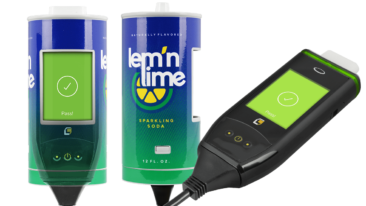
Drunk driving remains one of the most serious problems currently plaguing the United States. According to the Centers for Disease Control and Prevention, 10,265 people died in drunk driving incidents in 2015, which accounted for almost a third of all traffic-related deaths in the country.
The CDC estimates that 28 people die in motor vehicle crashes involving an alcohol impaired driver every single day. That is roughly one preventable death every 51 minutes. Even those crashes that do not lead to deaths have a severe cost on the country’s economy. The annual cost of drunk driving accidents amount to over $44 billion.
In order to take a stand against the growing problem of alcohol-impaired driving, states have implemented various laws to prevent and punish drunk driving. Enforcing DUI laws has become one of the most effective means of reducing incidences of drunk driving. Let’s take a closer look at DUIs and the potential penalties involved.
What Does DUI Mean?
DUI stands for “driving under the influence.” Terms vary from state to state. Some states refer to alcohol-impaired driving incidences as DWIs (driving while intoxicated), while others refer to them as OWIs (operating a vehicle while intoxicated). All of these generally speak to the same crime of driving a vehicle while under the influence of alcohol and, more recently, certain drugs.
What is a DUI?
All 50 states in the country have DUI laws, all of which consider your blood alcohol concentration to determine your level of alcohol impairment. All states set 0.08 percent BAC as the legal limit for driving under the influence. Commercial drivers can be charged with a DUI with a blood alcohol concentration of 0.04 percent or higher. Most states also have zero tolerance laws for young drivers under the legal drinking age, meaning anyone younger than 21 found with any amount of alcohol in their system may be arrested for a DUI.
Understanding Felonies and Misdemeanors
Felonies and misdemeanors are two different categories of crime with different associated penalties. Misdemeanors are reserved for less severe, usually nonviolent crimes, which may include:
- Petty theft
- Shoplifting
- Trespassing
- Vandalism
- Disorderly conduct
Misdemeanors generally won’t have more than a year of jail time, usually served in a local county jail. Along with jail time, punishments for misdemeanors usually involve fines and probation. Misdemeanors generally don’t have any extensive effect on your civil liberties.
Felonies are the most severe crime and often include any crime involving physical violence or actions that have caused extreme psychological harm, such as:
- Battery and aggravated assault
- Robbery
- Murder or manslaughter
Felonies usually result in over a year of prison time in a high security state prison. Felons also have to give up various civil liberties even after serving their penalties, including:
- The right to hold office
- The right to vote
- The right to serve on a jury
- The right to own and operate a firearm
The distinction between misdemeanors and felonies gets even hazier with “wobbler” crimes. Certain crimes are colloquially known as “wobbler” crimes, which simply means that they can be charged as misdemeanors or felonies based on any aggravating factors in the case and the prosecutor’s discretion. Prosecutors have a great deal of flexibility in deciding crimes to charge and how they are punished. In some states, the line between felony and misdemeanor simply comes down to the punishments and jail time involved.
Is a DUI a Felony or Misdemeanor?
So then, is a DUI a misdemeanor or felony? In a word, both. In all 50 states, a first offense DUI conviction without any aggravating factors is tried as a misdemeanor. A large majority of DUIs are considered misdemeanors. This often means a more simplified process. Misdemeanor DUIs do not, for instance, require a preliminary hearing or a grand jury. After the arrest, charge, and arraignment, misdemeanor DUIs proceed to a pretrial conference. If the case does not reach a plea agreement during the pretrial, it proceeds to a trial.
However, DUIs can be charged as felonies under certain conditions, most commonly:
- A fourth DUI in ten years – This is often a discretionary charge, meaning the prosecution can still charge you with a misdemeanor, but your fourth DUI can be charged as a felony, even if the previous DUIs were misdemeanors or you had a previous DUI expunged.
- A DUI that results in serious injury to someone else – This essentially shows that your negligence has potential to cause damage to those around you. Serious injuries do not necessarily have to mean brain damage or paralysis but may include broken bones, deep lacerations, disability, and permanent scarring. The victim simply needing to receive medical care may be considered a serious injury.
- A DUI resulting in death – Motorists who are driving under the influence and cause a fatal accident will be charged with vehicular manslaughter. To be charged with vehicular manslaughter, the prosecution must prove that you:
- Drove under the influence of drugs or alcohol
- Committed the act under gross negligence
- Killed someone as a result of that negligence
- Committed a misdemeanor or infraction that was likely to lead to death
- Driving under the influence with a minor passenger in the vehicle – This shows further negligence as you are endangering the life of a child.
- A prior DUI felony – If you have been charged with a prior DUI felony, any future DUI will also be considered a felony, regardless if you caused any injuries or fatalities or had any other aggravating circumstances.
All of these factors show a general disregard for other people’s lives.
Felony DUIs involve more intensive legal proceedings. You will likely have to go through several court meetings before the actual trial.
What are the Penalties for a DUI?
Penalties for a DUI can differ from state to state and based on the individual case. Almost all misdemeanor DUIs may involve a combination of:
- Jail time
- License suspension, revocation, or cancellation
- Fines
- License reinstatement fees
- Court costs and legal fees
- Enrollment in an alcohol or drug treatment program
- Installation of an ignition interlock device (car breathalyzer)
- Community service
Most states will also require you to undergo evaluation of your drinking patterns and behaviors. Based on the results of the evaluation, you may be required to participate in an alcohol treatment program, which may involve enrolling in Alcoholics Anonymous and other support groups or admitting yourself to an inpatient residential treatment facility.
These penalties become worse with each subsequent offense, resulting in higher fines and longer suspension and imprisonment periods. Felonies often have much more severe penalties, and based on the circumstances, you will likely serve at least one year in a state prison. Fines for felonies can surpass $10,000. Penalties become even stricter for commercial drivers, who may lose their commercial driving license and their primary means of making money.
On top of these criminal penalties, states put in place variety of laws to further punish those driving under the influence. For example, many states have implied consent laws. According to these laws, by owning a driver’s license, you automatically consent to a chemical breath test if you are pulled over on suspicion of driving under the influence of alcohol.
If you refuse to take the chemical test, you are breaking this law and will suffer various penalties, usually an administrative suspension. Refusing a chemical test is a separate offense from a DUI, meaning that even if you are acquitted of any DUI charges, you will still have to serve the penalties for refusing your chemical test.
Some states also have admin per se laws enforced by the Department of Motor Vehicles (or other related state administration). Admin per se laws allow officers of the law to immediately confiscate and suspend your license if you fail or refuse a test. With that being said, many people also want to know how long is your license suspended for a DUI. Keep in mind that this can also vary from a case to case basis. With admin per se laws, the penalties are always much harsher if you refuse a chemical test than for outright failing the test.
Using an Ignition Interlock Device
Ignition interlock devices connect directly to your car’s ignition system. In order to start your car, you have to blow into a mouthpiece that connects to the main device that measures your blood alcohol concentration. If the device detects any alcohol in your system, it will prevent you from starting your car for a certain period of time. Ignition interlock devices will also ask for breathing samples periodically throughout your drive.
While ignition interlock devices were initially reserved for more severe DUI cases (repeat offenses or DUIs where the driver had a BAC over 0.15 percent), they have since become a more common tool for punishing and discouraging drunk driving. If the court requires you to install an ignition interlock device, you are responsible for all costs associated with the installation and upkeep of the device. You can only get an IID installed from an approved vendor.
Low Cost Interlock is an approved vendor that offers the most affordable, reliable services in the country. With many ignition interlock devices, you have to breathe into the device using complex patterns that don’t always offer the most accurate results. Low Cost Interlock uses the latest in ignition interlock device technology that is designed for greater efficiency and ease of use.
No more complex breathing patterns. No more inaccurate results. Our technicians are also dedicated to guiding you through the process and teaching you how to properly use your device to ensure that you successfully complete your IID program without any hiccups. If you have any questions, please don’t hesitate to reach out to our Low Cost Interlock Customer Service today.

